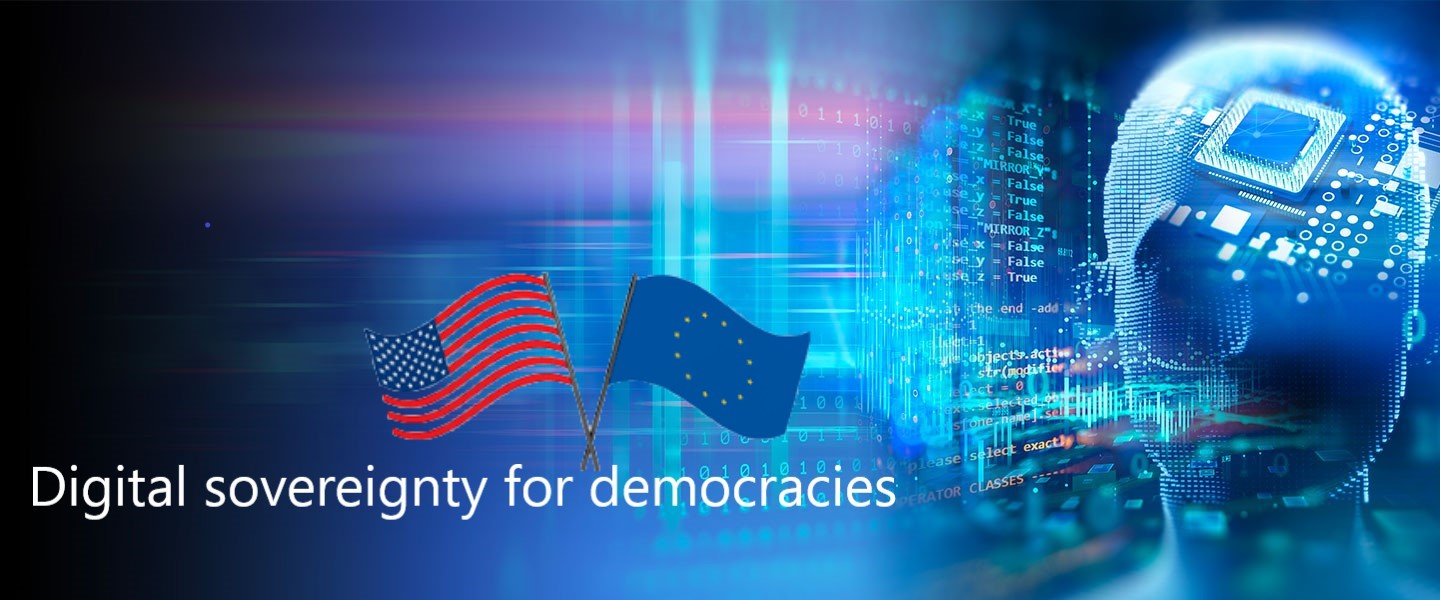How far should allies cooperate in the brave new world of the digital? This question has reached uncomfortable levels of significance since the invasion of Ukraine by Russian forces earlier this year. When Trump was in power in the US and Big Tech enjoyed unfettered access to the digital world and all its data, phrases like ‘digital sovereignty’ and ‘strategic autonomy’ became increasingly popular here in Brussels. EU leaders were looking for ways to be aligned with their long-time allies across the pond, while ring-fencing some space of their own in the virtual world.
As the regulatory leader of the free world, the EU took the initiative and tackled tax avoidance by Big Tech in Europe (led by Margrethe Vestager), wide-ranging data privacy regulation in the form of the General Data Protection Regulation (GDPR) and more recently, the Digital Services Act (DSA) and the Digital Markets Act (DMA). The even more ambitious AI Act is still in the pipeline. But with Russia’s invasion of Ukraine, China’s crack-down on Hong Kong and increasingly militant stance toward Taiwan, the virtues of shared values, rather than joint business ventures are rapidly becoming clearer.
Russia’s unprovoked war on Ukraine has made it impossible to speak of democratic values while continuing to do business with nations for whom these same values are patently immaterial. This realisation has come as an existential shock for many, particularly those in Western Europe, the majority of whom quietly believed that the barbaric reality of physical warfare was something with which the Old World was well and truly done. And if this were not enough, physical warfare has been reinforced with unprecedented levels of cyber warfare – the digital world has become a proxy for the worst excesses of the real one.
“The war in Ukraine is a war about the future of Europe”- EP Vice President, Dita Charanzova.
“The war in Ukraine is a war about the future of Europe” said Vice President of the European Parliament, Dita Charanzova, at an event recently organised by Euractiv here in Brussels. Unsurprisingly perhaps, it is some of the former Eastern bloc member states that have been most alive to the existential threat posed by Putin’s Russia.
As the Czech Republic currently holds the European presidency, leaders like Ms Charanzova are galvanizing Europe with their calls for values-based visions of a digital Europe. “For me, the challenge of a digital future is making sure that democratic values underpin it” and, in case there were any doubts as to her position, “for this reason, we need to ensure that it is not China that is setting up the rules.” She speaks of open digital sovereignty and warns against a “closed European space”.
Her countryman, Czech Deputy Minister of European Affairs, Marek Havdra, wants to go even further. He emphasises the idea of what he terms ‘strategic autonomy of democracies’. His vision involves deepening relationships and R&D ventures between businesses from across the democratic world, with special focus on the EU/US relationship.
Havdra also challenges the notion that EU industry needs to stick together. Instead he would like to see less “rent-seeking behaviour”, aimed at maintaining the status quo, and more healthy competition between businesses across the democratic world. Move aside Alibaba and Tencent, the free world will take it from here.
Yet cooperation with the US, particularly during the Trump era, has proved challenging for Europe. There are differences in values here too – Europe prefers low risk and regulation over the more free-wheeling, no-holes barred innovation that is prized in the US. Even now, after two years of more stable relations with the Biden administration, friction points persist.
The CHIPS Act – EU or US version?
The CHIPS Act is a case in point, both the EU and the US are intent on leading regulation of the semi-conductor industry. The EU Commission announced its plans for the European Chips Act in February of this year. While in July of this year, the US Congress passed the CHIPS Act to strengthen domestic semiconductor manufacturing and reinforce America’s chip supply chains. Havdra admits that this sort of competition is not the kind he had in mind, describing it as “a race to the bottom in terms of democratic worth.”
The Inflation Reduction Act from the US, is another case in point. No partnership is perfect. But, the reality, as European politicians, business people and bureaucrats are increasingly realising, is that neither Europe nor the US can go it alone, when it comes to doing digital democratically. The stakes are simply too high to let undue attachment to notions of digital sovereignty get in the way of working together against authoritarian regimes that are unimpeded by concerns such as human rights.
EU Commission representative, Thibaut Kleiner of DG Connect, admits that, from an EU perspective, “values are now taking over from pure economics”. He acknowledges too that “the war in Ukraine is about the future of the digital world” and that Russian disinformation continues to be a powerful force in Europe.
No such thing as a free lunch
Perhaps it is best summed up in the words of Czech industry leader, Milena Jaburkova, when she said, “There is no such thing as a free lunch – the EU cannot depend on cheap, critical goods and services from authoritarian regimes”. The war in Ukraine has certainly provided a harsh but necessary wake-up call to all those who thought otherwise.
Looking ahead, leaders on both sides of the Atlantic will soon be focusing on the third meeting of the US/EU Trade and Technology Council (TTC 3) due to take place in early December. Dedicated to ensuring that like-minded partners “remain leaders in developing and protecting tomorrow’s technology”, the ability of those who share fundamental values of freedom and democracy to work together, will again be tested. As a member of the European Social and Economic Committee, Andris Gobins, recently put it, “Democracy is expensive, but freedom and peace are priceless”.

